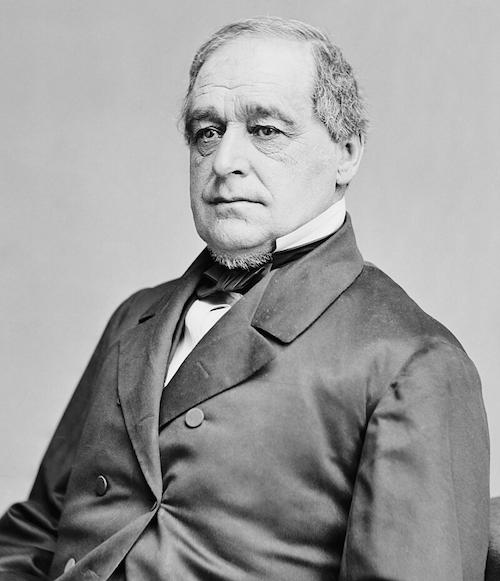Hannibal Hamlin was the 15th Vice President of the United States from 1861 to 1865. He was the first Republican Vice President.
Early Life
Hannibal Hamlin was born on August 27, 1809, in Paris Hill, Maine to parents Cyrus Hamlin and Anna Livermore. His father was a doctor and a farmer. When his father died, lack of money limited Hamlin’s education. To help support his family, Hamlin worked as a surveyor and a teacher.
Hamlin studied law at a firm in Portland, Maine mentored by Samuel Fessenden, an antislavery activist. Hamlin was admitted to the bar in 1833 and opened his own practice in Hampden, Maine where he practiced until 1848.
Early Career
Hamlin’s political career began in 1835, when he served in the Maine House of Representatives from 1836 to 1840. He began his career as a Jacksonian Democrat who strongly opposed slavery. He was elected to the U.S. House of Representatives in 1842 and to the U.S. Senate in 1848.
He took a strong antislavery position on sectional issues and left the Democratic Party in 1856 because of its endorsement of the Kansas-Nebraska Act. He was one of the few Democrats to vote against the Act because he did not want slavery to spread into these territories. Hamlin supported the Wilmot Proviso, which would have prohibited slavery from spreading into any territory acquired from Mexico.
In 1856, Hamlin was elected as Maine’s first Republican Governor, but resigned in 1857 to return to the Senate.
Vice-Presidency
The 1860 Republican National Convention nominated Abraham Lincoln for President and Hamlin for Vice President. The party hoped that Hamlin, a former Democrat, would provide both regional and partisan balance to Lincoln, and would persuade other anti-slavery Democrats to join the Republicans.
Hamlin did not meet Lincoln in person until after they won the election. Hamlin had almost no role in the administration, and during the Civil War, Lincoln rarely consulted him. Though Hamlin had little influence, he urged Lincoln to issue the Emancipation Proclamation.
Hamlin was not fond of his position as Vice President because he missed being a part of the political process, and he found presiding over the Senate boring. In 1864, the Republican Party chose to nominate Andrew Johnson as Vice President. Hamlin missed becoming President by just a few weeks when Lincoln was assassinated in April 1865.
Late Career
Hamlin was re-elected to the U.S. Senate in 1869. He supported Reconstruction and served as Chairman of the Foreign Relations Committee. He served until he chose not to run for reelection in 1880. President Garfield appointed Hamlin as Minister to Spain in 1881. He served for only one year until he retired in 1882. Hamlin died on July 4, 1891, becoming the third former Vice President to die on Independence Day






